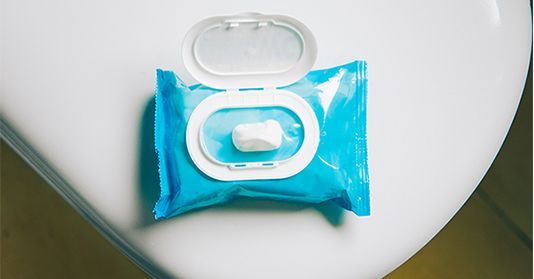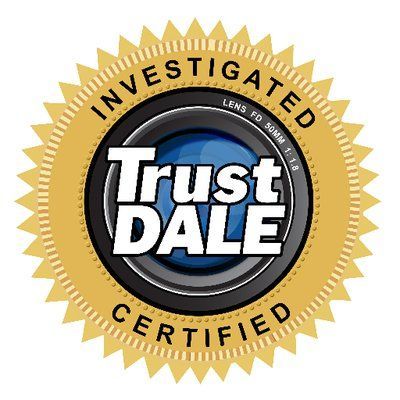

Don't Wait Till Its Too Late...Call The Honest Plumber!
Now accepting appointments for
cooling & HEating
Don't Wait Till It's Too Late...Call The Honest Plumber!
When it comes to convenience, baby wipes have become a popular choice for many households. These moist towels promise a cleaner and fresher experience. However, there is a growing concern among plumbing professionals and environmental experts alike: Are flushable wipes safe to flush? This comprehensive blog post will delve into the hidden dangers associated with flushable wipes, their impact on plumbing systems, and the environmental consequences of their disposal. By the end of this article, you will have a clearer understanding of whether these seemingly harmless wipes are, in fact, as safe as they claim to be.
The Rise of Baby Wipes: Convenience vs. Consequences
Exploring the Popularity of Baby Wipes
In today's fast-paced world, convenience is key. We all want products that make our lives easier and more efficient, and baby wipes fit the bill perfectly. The popularity of baby wipes has soared in recent years, with countless brands offering various options, including baby wipes for personal hygiene, household cleaning, and even pet care. The convenience factor is undeniable – they're easily accessible, portable, and seemingly efficient at their intended tasks. As a result, many households nationwide have incorporated baby wipes into their daily routines, believing they provide superior cleanliness.
Understanding Their Composition
To truly understand the potential dangers of baby wipes, it's important to examine their composition. Baby wipes are typically made of fibrous materials like bamboo, cotton, or non-woven fiber. These materials can be wood pulp or non-biodegradable polyester. While some manufacturers claim that their wipes are biodegradable, the truth is that all types of wipes are much harder to break down than toilet paper. Despite flushable claims, baby wipes do not disintegrate like toilet paper does. When moist, baby wipes retain their structure and are more durable than paper towels. This difference in material properties raises significant concerns for your plumbing system and the environment.
The Downside: Baby Wipes and Plumbing Problems
Why Baby Wipes Don't Belong in Toilets
At the heart of the issue lies a fundamental misconception – the belief that if a product is labeled as "flushable," it means it can be safely disposed of by flushing it down the toilet. However, this assumption couldn't be further from the truth. While flushable wipes are designed to disintegrate more readily than non-flushable alternatives, the process is imperfect. Flushable wipes are a major contributor to plumbing problems and sewer system clogs. Unlike toilet paper, which readily breaks down in the water, flushable wipes remain intact for longer. As they traverse the sewer lines, they can accumulate and combine with other debris, forming giant blockages known as "fatbergs." These fatbergs disrupt the flow of wastewater and create massive environmental hazards.
Common Plumbing Issues Caused by Baby Wipes
Flushing baby wipes can lead to many plumbing problems, ranging from minor inconveniences to major disasters. Let's explore some of the most common issues caused by flushing baby wipes:
- Clogs and Blockages: Baby wipes do not disintegrate like toilet paper, causing major clogs. When flushed, these wipes can accumulate along the pipes, especially in older plumbing systems, leading to blockages that can result in costly repairs. Homeowners may face the inconvenience of toilet backups, slow drains, and burst pipes.
- Sewer Line Damage: The consequences of flushable wipes on plumbing systems extend beyond the nuisance of clogs. These wipes can also cause damage to sewer lines. As they make their way through the sewer system, they can get tangled with other debris, leading to the deterioration and collapse of pipes. Repairing or replacing damaged pipes can be a significant financial burden, potentially costing thousands of dollars.
- Backups and Overflows: Flushing baby wipes can lead to sewer backups and overflows, which can be messy, unpleasant, and hazardous to your health. Raw sewage can back up into your home, causing extensive damage and posing serious health risks. Cleaning up after a sewage backup is time-consuming and expensive and requires professional assistance to ensure proper sanitation.
Protecting Your Plumbing: Proper Disposal Methods
Educating Household Members
One of the most effective ways to prevent plumbing problems caused by baby wipes is to educate all household members about the dangers of flushing them. Ensure everyone understands that only human waste and toilet paper should be flushed down the toilet. Provide clear instructions on properly disposing of baby wipes and encourage everyone to dispose of them in the trash instead.
Providing Alternative Disposal Options
To further reduce the risk of plumbing problems, consider providing alternative disposal options for baby wipes. Place small trash cans with lids in bathrooms and other areas where wipes are commonly used. Make it easy for household members to dispose of used wipes properly by providing clear signage and reminders. Empty the trash cans regularly to prevent odors and the temptation to flush wipes.
The Role of Professional Plumbers
Detecting and Addressing Baby Wipe-Related Issues
If you suspect that your plumbing system has been affected by baby wipes, it's crucial to seek professional help. Licensed plumbers have the expertise and specialized equipment to detect and address baby wipe-related issues. They can inspect thoroughly, clear clogs, repair damaged pipes, and provide preventative maintenance to ensure your plumbing system functions properly.
Preventative Plumbing Maintenance
In addition to addressing immediate issues, professional plumbers can provide preventative maintenance to safeguard your plumbing system from future problems. Regular inspections, drain cleaning, and pipe maintenance can help prevent clogs and damage caused by baby wipes and other non-flushable items. By investing in preventative plumbing maintenance, you can save yourself from costly repairs and inconveniences.

Superior Plumbing: Your Local Plumbing Experts
Experienced in Handling Baby Wipe-Related Problems
Regarding plumbing problems caused by baby wipes, Superior Plumbing is your go-to source for reliable solutions. With years of experience in the industry, our team of expert plumbers has encountered and successfully resolved numerous issues related to flushable wipes. We understand these wipes' unique challenges and have the knowledge and tools to address them effectively.
Prompt and Reliable Plumbing Services
At
Superior Plumbing, we pride ourselves on providing prompt and reliable plumbing services. We understand that plumbing emergencies can happen anytime, so we offer 24/7 emergency plumbing services. Whether you're dealing with a clogged toilet or a sewer backup, our team is ready to respond quickly and efficiently, ensuring minimal disruption to your daily life.
The hidden dangers of flushing baby wipes cannot be overlooked. As convenient as they seem, flushable wipes pose significant risks to your plumbing system and the environment. Raising awareness about these risks and adopting proper disposal methods can safeguard your plumbing and prevent costly repairs.
If you're experiencing plumbing problems caused by baby wipes or need other plumbing services, don't hesitate to contact Superior Plumbing. Our team of skilled plumbers is here to provide you with reliable solutions and exceptional customer service.
Contact us today to schedule an appointment or for emergency plumbing assistance. Your satisfaction is our top priority.







